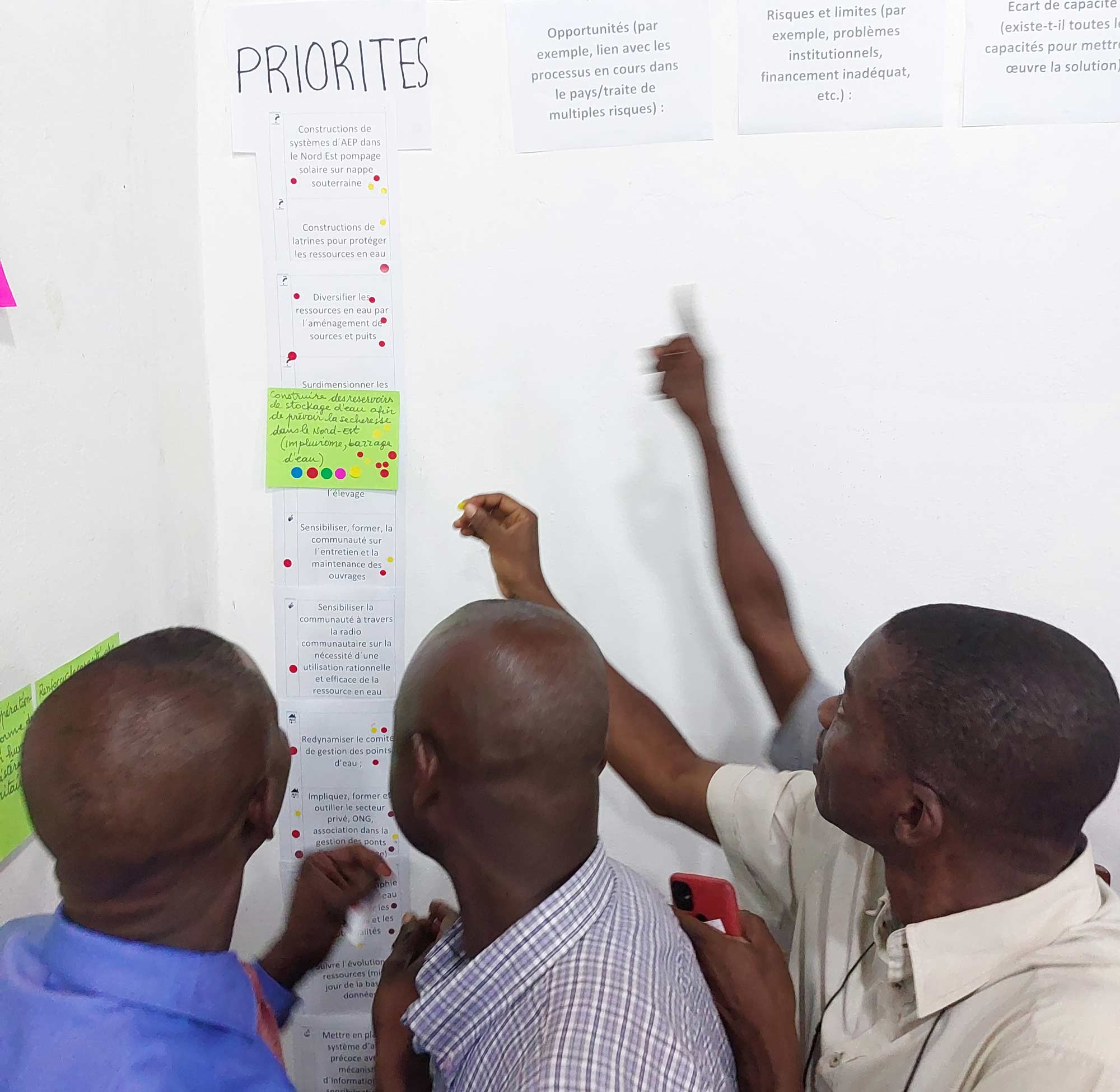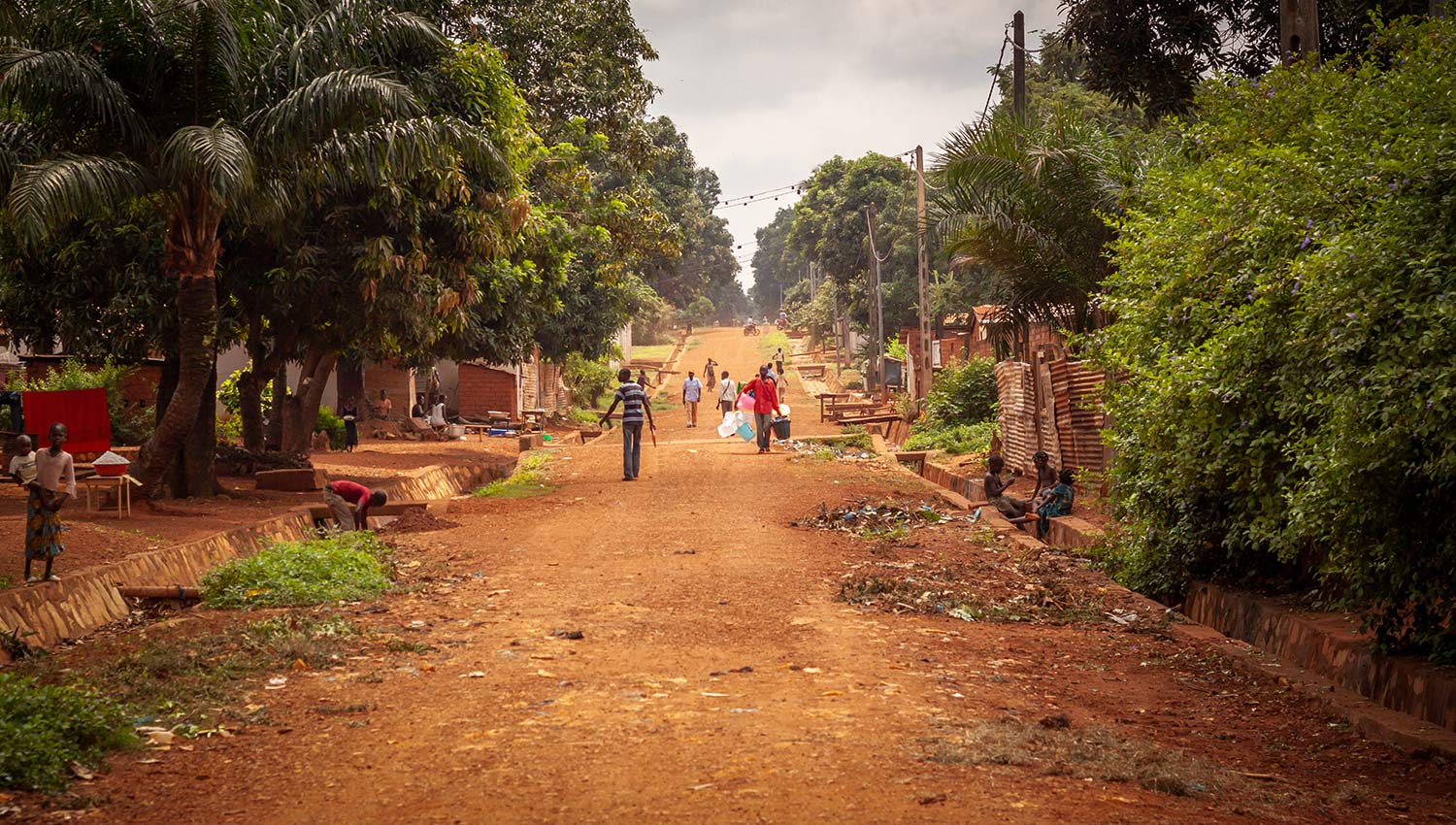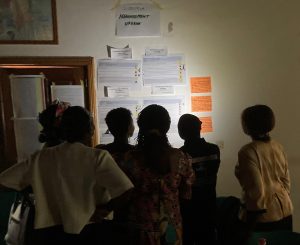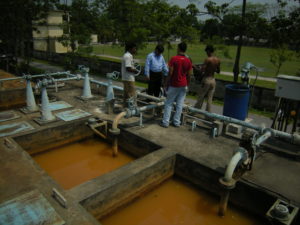In November 2022, a SIWI team helped organize and moderate a workshop to support the government of the Central African Republic in the design and appraisal of solutions to achieve climate resilient water and sanitation services. The results underscore that WASH vulnerability to the climate crisis and armed violence should be addressed simultaneously.
Putting climate resilience on the WASH agenda in the Central African Republic
Adding a climate change perspective changes the focus of WASH service delivery. From the vantage point of climate resilience, it is not enough to just provide access to a service; sustainable WASH service delivery requires planning for a future that guarantees lasting water availability for everyone, in a context of growing uncertainty. This is the purpose of SIWI’s and UNICEF’s joint efforts to support a shift towards climate resilient WASH in UNICEF’s countries of operation.
Considerations for the long-term, however, often tend to be overlooked in fragile contexts such as the Central African Republic (CAR). The country is one of the poorest on the planet and one of the least ready to improve its resilience to climate change. Development progress in CAR is further undermined by conflict, violence, political instability, internal displacements, and food insecurity. Despite these acute challenges, however, the CAR government showed strong support for climate resilient WASH services during the workshop and demonstrated their interest for lasting solutions to the climatic disruptions that already impact the country.
Similarly to the climate-informed WASH BAT workshop that took place earlier in April 2022, participants represented various line ministries, state agencies, and civil society. Initial discussions centered around three of the climatic hazards that were identified in the risk analysis informing the WASH BAT workshop: floods, droughts, and water scarcity.
In contrast with the WASH BAT workshop, however, this solution appraisal meeting enabled participants to explore more in-depth facets of the concerns faced by the WASH sector, to figure out remedies and then evaluate them. Issues of droughts, floods and water scarcity were envisaged at the local level, at the watershed level, and at the national level. Participants looked for synergies and interlinkages between the three levels of action and spent time discussing how the solutions they proposed could complement the Action Plan that resulted from the WASH BAT workshop.
Addressing climate risks and conflict-related insecurity simultaneously
The workshop offered a platform for participants to brainstorm concrete ideas on how to address the specific impacts of climate change on water access in the country. The content of the discussions showed that the climate crisis, conflict, and water and sanitation issues in CAR are inextricably linked. A combination of violent socio-political crises further worsens the climate vulnerability of WASH delivery actors and users. A recent UNICEF report shows, for example, that exposure of young people to conflicts is a major bottleneck in the resilience of WASH provision in CAR (SFCG & UNICEF, 2022). The torrential rains that affected thousands of central Africans in 2022 is a case in point (OCHA Nov 2022), as even if the floods temporarily lessened the violence, their impact on basic water services had severe consequences on children, adolescents, and women.
The dramatic situation of internally displaced persons was one of the issues that emerged repeatedly in the working groups. After years of violence, entire segments of the country´s population live in extremely precarious conditions; the insecurity in the country weakens the state’s capacity to provide services, including water and sanitation. Violence also disrupts international attempts to deliver assistance to areas affected by climatic crises. An average of 32,000 people continue to flee violence and insecurity every month to settle in bigger towns and in the capital Bangui (OCHA Nov 2022), putting further stress on urban water and sanitation systems and undermining progress made in access to services in rural areas.











